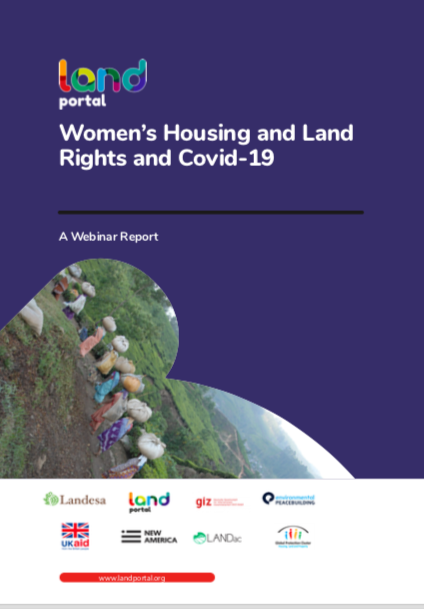Rural women make up a quarter of the world’s population, but many face legal and social barriers that limit their ability to access, use and benefit from the land they tend and depend on for their livelihoods. While women play an indispensable role in the rural economy, feeding families, conserving resources and contributing to community well-being, fewer than 15 percent of rural women have secure land rights, which impedes agricultural productivity and poverty alleviation and leaves women less empowered, economically and socially. Securing these rights is crucial to achieving a more equitable and sustainable world.
From large land acquisitions that displace communities without due compensation, to the encroachment of mining on indigenous lands, to the brunt of climate change and natural disasters, to everyday land and property deprivation by kin or state, women are typically more harshly impacted by land tenure insecurity due to discriminatory laws and lingering social bias. The Covid-19 virus
threatens to exacerbate a highly unequal situation.
This webinar focused on women’s land rights and the implications of Covid-19 on vulnerable communities and groups who may face additional burdens as a result of the virus. In many countries, women are hesitant to participate in activities and to make claims related to women’s land rights. There is a fear that a consequence of the virus will be that women will be even less likely to make claims (especially related to inheritance) or register their land rights. This webinar explored a range of issues, including women’s engagement and the degree to which women will be subject to familial land grabbing as a result of the local virus. It also looked at land governance and administration with respect to women’s land rights. Additionally, it considered concrete policy and program options to address the rising levels of gender-based violence - especially in light of restrictions obligating people to stay at home, thereby exposing vulnerable women to more violence.






